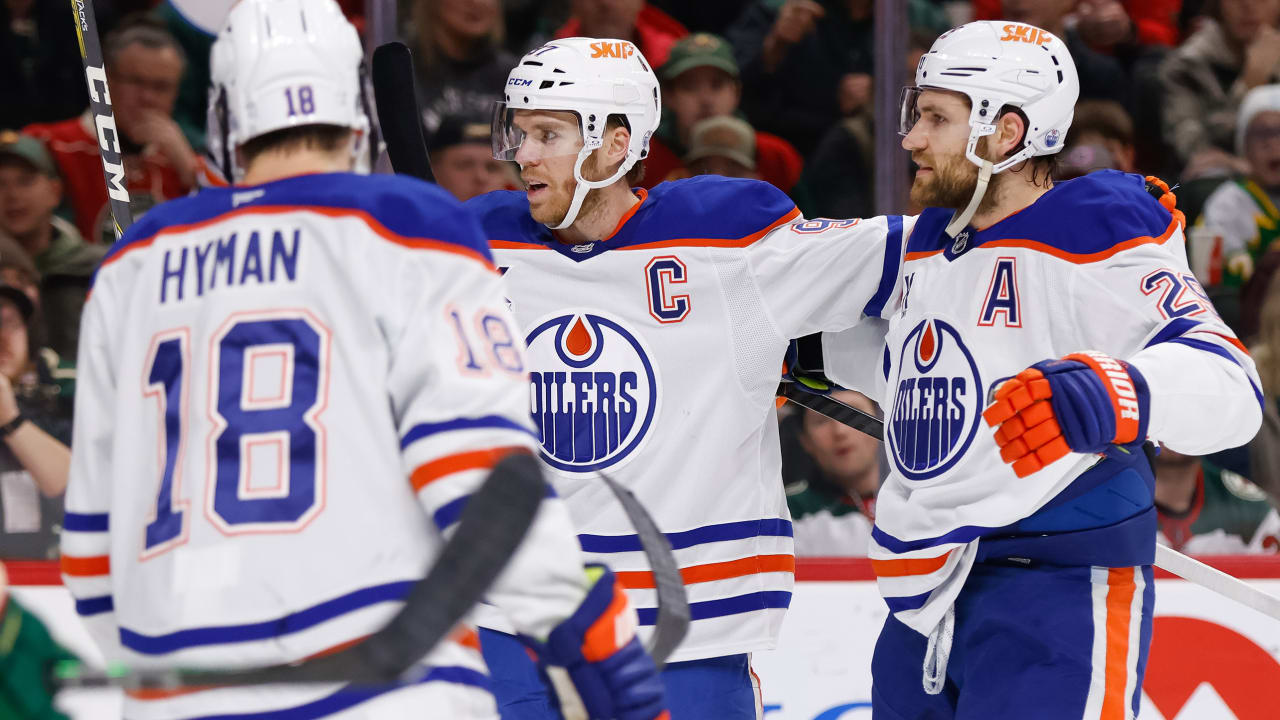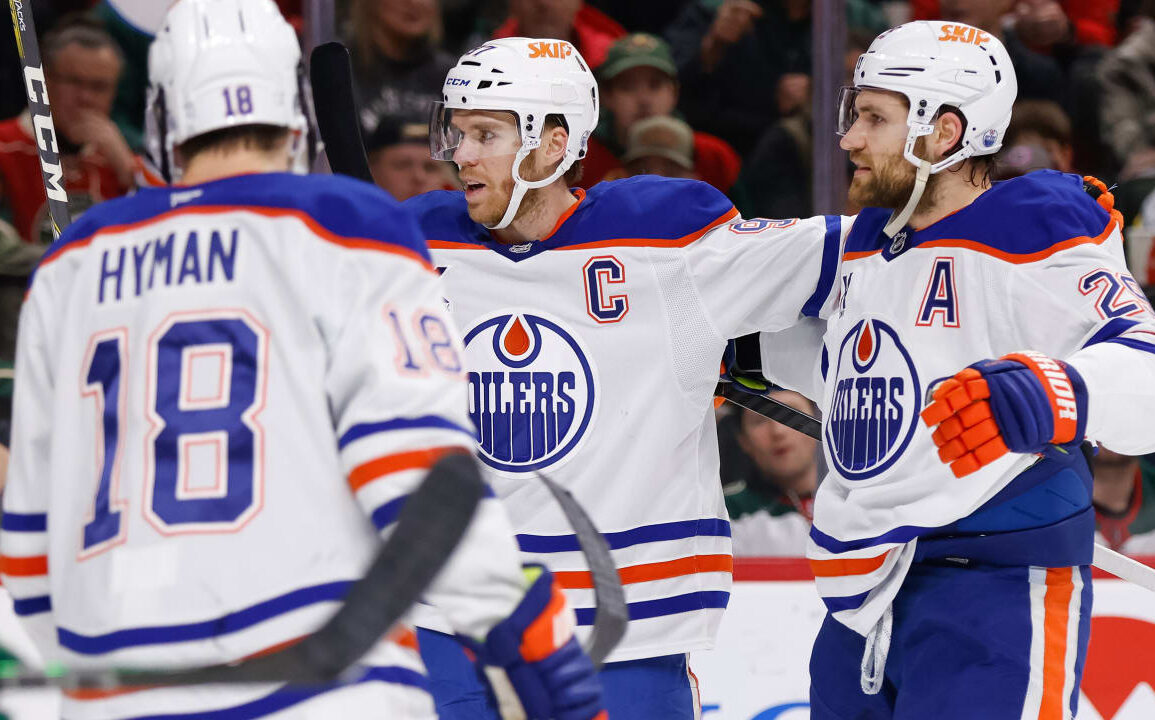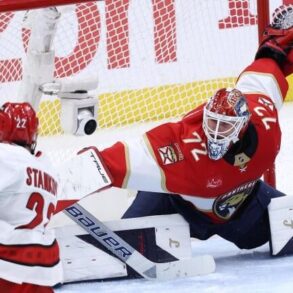
Legendary hockey reporter Stan Fischler writes a weekly scrapbook for NHL.com. Fischler, known as “The Hockey Maven,” shares his humor and insight with readers every Wednesday.
With the Stanley Cup Playoffs deep into the Western Conference Final, this week zeroes in on the Edmonton Oilers-Dallas Stars series while detailing how a picturesque former World War II fighter pilot founded a junior hockey team that eventually would lead to an NHL dynasty in Alberta.
While watching the Edmonton Oilers’ crusade for their sixth Stanley Cup championship and first since 1990, it’s hard to imagine that the team led by Connor McDavid and Leon Draisaitl was founded by a Canadian Royal Air Force fighter pilot who fought in the Battle of Britain during World War II.
During the early 1940s, Saskatoon, Saskatchewan, native Bill Hunter piloted Royal Air Force Supermarine Spitfires and Hawker Hurricanes over European skies before returning home and planting the seeds of big-league hockey in Edmonton.
“The NHL Oilers and their original arena — Northlands Coliseum — were products of Hunter’s immense will,” wrote Ed Willes in “The Rebel League: The Short and Unruly Life of the World Hockey Association.”
“Wild Bill,” who died Dec. 16, 2002, at the age of 82, would have been fatherly proud of his creation. The Oilers held a 2-1 lead against the Dallas Stars in the Western Conference Final entering Tuesday with Game 5 of the best-of-7 series at American Airlines Center on Thursday (8 p.m. ET; ESPN+, ESPN, SN, TVAS, CBC). Edmonton rebounded after losing the opener 6-3 by winning 3-0 in Game 2. McDavid and Zach Hyman then took over in Game 3, scoring two goals each in a 6-1 rout for a 2-1 series lead.
Hunter only could dream of building an NHL team after World War II, when he became president of the Western Canada Hockey League while also managing the Edmonton Oil Kings.
“Bill had the imagination to envision things others dared not to dream,” Willes wrote, “and he had the ingenuity to turn them into reality.”
When the WHA emerged in 1972, Hunter became the driving force behind the Alberta Oilers, one of six teams in the new league’s Western Division, while also doubling as the circuit’s outspoken cheerleader.
Hunter opened the inaugural 1972 WHA Draft by saying, “This is the greatest day in the history of the world!” Then, after a pause and deep breath, he added: “Now we’re going to introduce one of hockey’s most influential people. And if he doesn’t support this league, we’re going to send him back home in a hearse.”
He was introducing Alan Eagleson, head of the NHL Players’ Association, who was only mildly amused.
As it happened, none of the WHA coaches thought he was amusing.
“He always seemed to fire the coach halfway through the year,” Alberta defenseman Al Hamilton said.
During the Oilers’ first season, Hunter gave goalie Ken Brown a rare assignment, leading cheers.
“Before every game we had to shout, ‘We’re the Oilers and we know it, clap your hands,'” Brown said. “Another day, Bill said to me, ‘Mr. Brown you are now in charge of enthusiasm.'”
“Hunter was our league’s version of P.T. Barnum,” said Howard Baldwin, the last WHA president. “But sometimes he just got carried away with his stunts.”
Or, as Los Angeles Herald Examiner hockey writer Walt Marlow put it, “Bill would call a press conference just to announce a press conference.”
“Hunter’s skaters were competitive if not superior,” wrote Hockey Hall of Fame defenseman Kevin Lowe in his autobiography “Champions: The making of the Edmonton Oilers.”
The Oilers survived until the 1979 NHL Expansion Draft, when Edmonton, the Winnipeg Jets, Quebec Nordiques and Hartford Whalers were admitted to the NHL. By that time, Hunter outworn his histrionics and sold his interest in the team but was not forgotten. When the Oilers smoothly transitioned into the NHL, Elmer Ferguson Award-winning columnist Terry Jones proclaimed, “Here we are today thanks to Bill Hunter.”
Wayne Gretzky also made a smooth transition from the WHA into the NHL.
“For Wayne it was the start of the greatest individual career in NHL annals,” Willes wrote, “and one of the greatest teams.”
The contemporary Oilers are trying to end Canada’ s 32-year Stanley Cup drought since the Monreal Canadiens’ championship run in 1992-93. With McDavid, considered by many to be the world’s greatest contemporary player, they could do it.
“I think people forget he’s a 60-goal scorer,” Hyman said after Game 3, referring to McDavid’s NHL career-high 64 goals he scored in 2022-23. “I mean, he’s probably an underrated goal-scorer. He makes the right play, whether it’s a pass or a goal, right?
“Best player in the world. And when he has an opportunity to shoot it, and he shoots it, there’s a good chance it goes in.”
NHL.com staff writer Mike Zeisberger contributed to this report
This post was originally published on this site be sure to check out more of their content.










